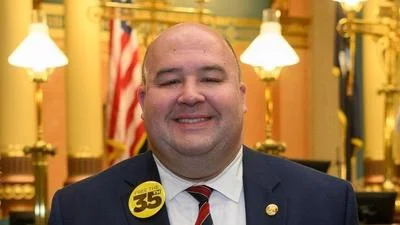Sandy K. Baruah President and Chief Executive Officer at Detroit Regional Chamber | LinkedIn
Sandy K. Baruah President and Chief Executive Officer at Detroit Regional Chamber | LinkedIn
New polling data in Michigan indicates a shift in voter concerns regarding the economy, with fears over inflation and recession showing a significant decline. Despite these changes, there is still widespread belief that the state is not on the right economic path.
Democratic Vice Presidential candidate Kamala Harris appears to be closing the gap on economic issues with GOP candidate Donald Trump. Sandy K. Baruah, Chief Executive Officer of the Detroit Regional Chamber, stated, "They now stand at 15.6% compared to 44.9% in November of 2023," referring to fears of inflation. Concerns about a recession have also decreased from over 50% in November 2023 to 20.5%.
A notable majority of voters believe Michigan is currently on the wrong economic track; however, 80% are not concerned about job security.
Former President Trump has criticized Harris for her policies on electric vehicles (EVs), including mandates for EV sales targets. Additionally, Vice Presidential candidate JD Vance did not support federal aid for converting a GM plant in Lansing to produce EVs. The Detroit Chamber's data shows strong opposition among Republicans and rural voters toward EV initiatives.
Richard Czuba, a pollster from Glengariff, noted that "they are deeply skeptical about EVs and actually don’t think EVs will grow in sales and don’t think Michigan should compete to build EVs."
The poll also explored how politics might strain personal relationships—a question not previously asked in past presidential campaigns. According to Czuba, "Thirty-one point five percent said yes with family, 37% with friends and 18% at work." Data suggests that white individuals are more likely to experience strained relationships due to politics at 35%, compared to only 10% among African Americans.
Despite most Americans expecting a peaceful transfer of power on inauguration day, nearly half—49%—anticipate unrest following the announcement of election results.






 Alerts Sign-up
Alerts Sign-up